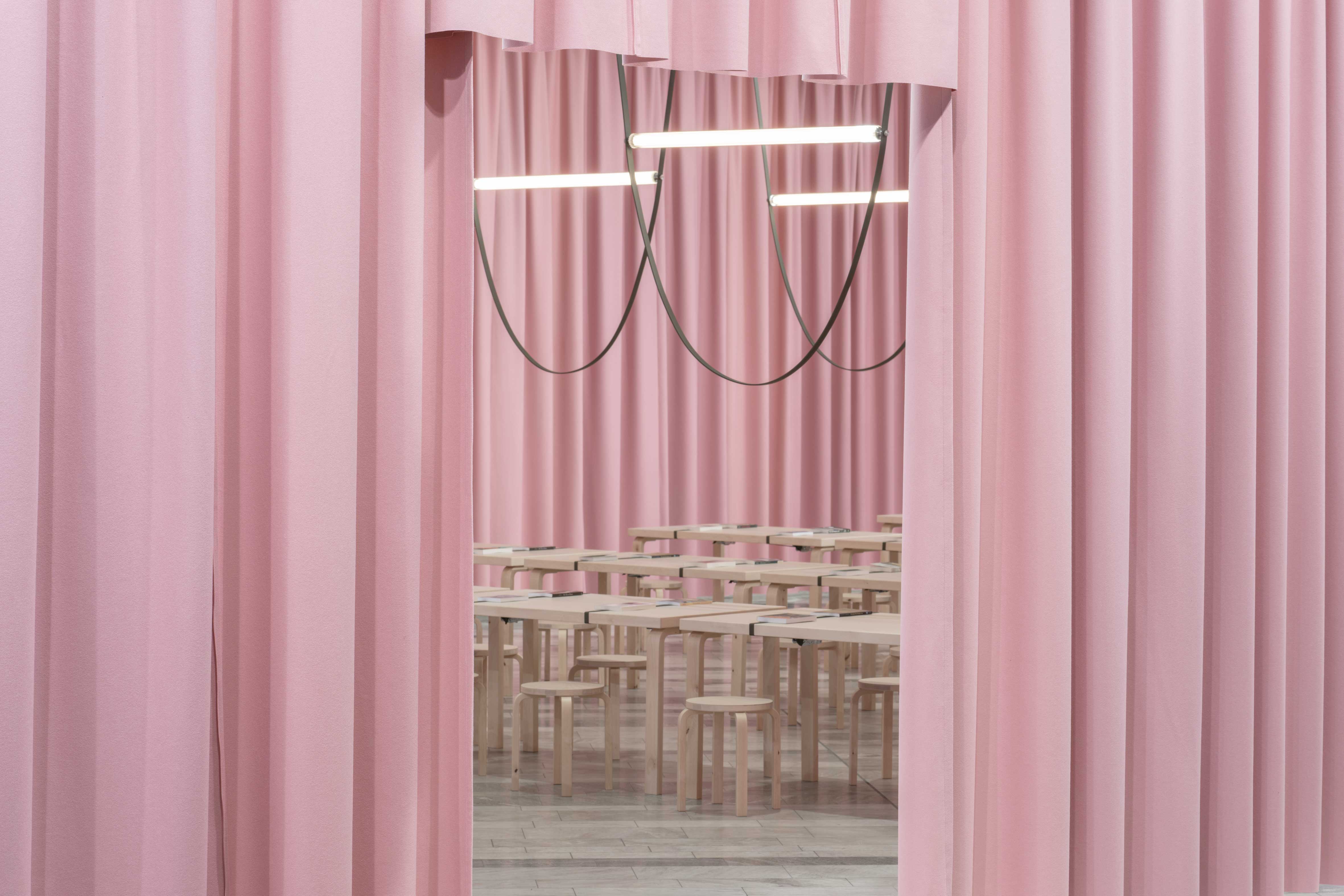
When we visited Stockholm Design Week 2024 (on until 11 February), designers from around the world were exploring what happens when the old is combined with the new.
South Korean design brand Wekino asked seven talented Korean designers to create objects that explored the juxtaposition between the country’s hyper-modern present and rich historical traditions. Formafantasma, the fair’s Guests of Honour, encouraged visitors to stop and think about how past environmental decisions will shape the future of design. Heritage Finnish brand IIttala debuted its revamped creative identity at a riotous opening event. Meanwhile, Svenskt Tenn celebrated its 100th anniversary with a reimagining of a classic pattern.
Amongst these designers and the hundreds of others on display in the city, there was a sense that the most innovative design of today is always, in some way, a response to what came before it; and that designers should celebrate that lineage rather than hide it. As Svenskt Tenn, designer Josef Frank said nearly 100 years ago, ‘there’s nothing wrong with mixing old and new, with combining different furniture styles, colours and patterns. Things that you like will automatically fuse to form a relaxing entity.’
Stockholm Design Week 2024 highlights
Stockholm Furniture Fair Guest of Honour: Formafantasma
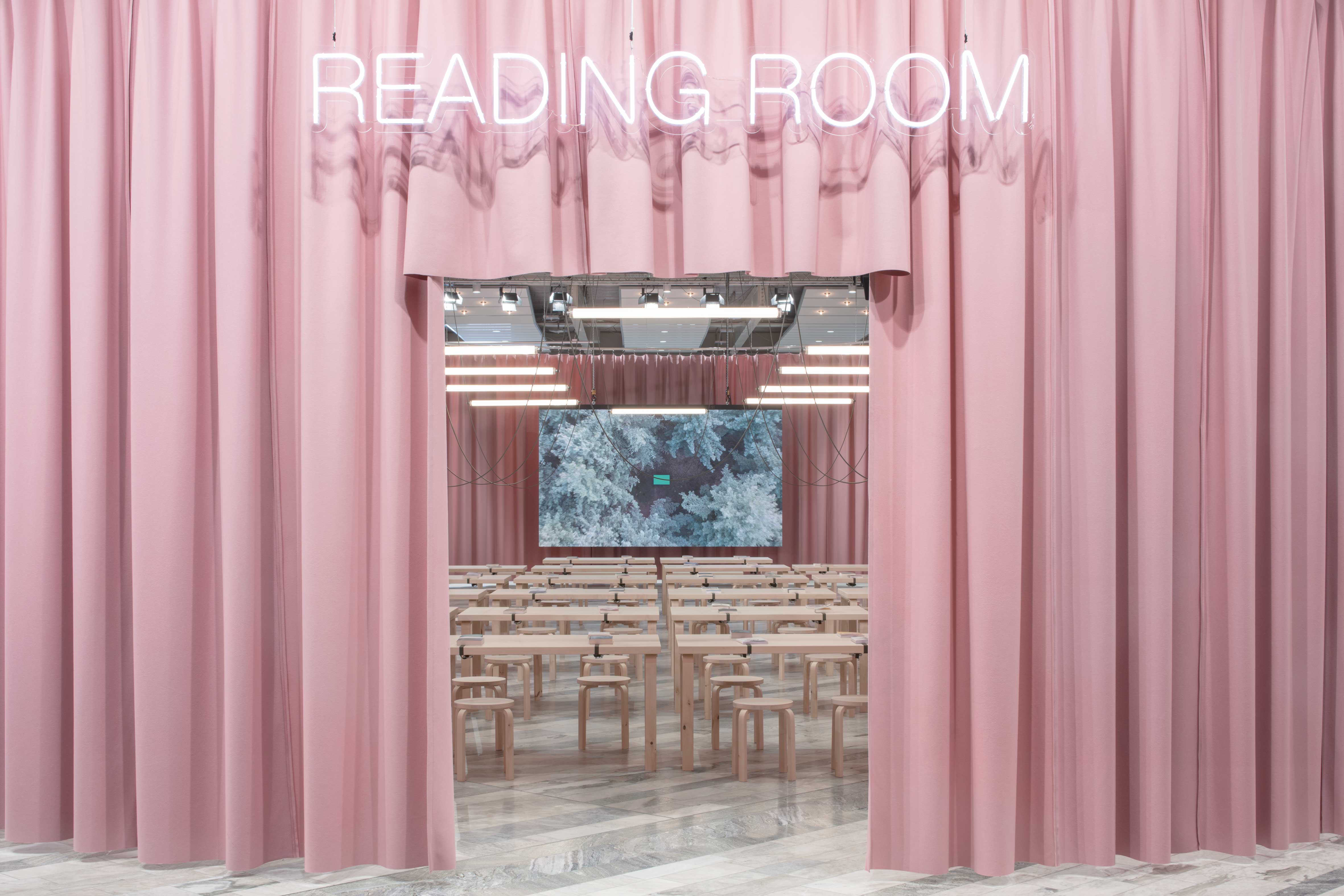
Formafantasma won the Guest of Honour title at this year’s Stockholm Furniture Fair. To celebrate, the Italian design duo created a bubblegum pink Reading Room in the fair’s main entrance hall. ‘We are a strange practice because we have a commercial practice but we are also a research studio and we play a lot in this ambiguity,’ said Andrea Trimarchi during a discussion inside his curtained construction.
For the Reading Room, the studio played with that ambiguity by inviting fair-goers to take a break from the commerce of the stalls by thinking about the intellectual issues that underlie all good design. Books on ecology and design theory ran along Artek tables, while a video from the studio’s past Serpentine exhibition played on a screen.
stockholmfurniturefair.se
formafantasma.com
Wekino
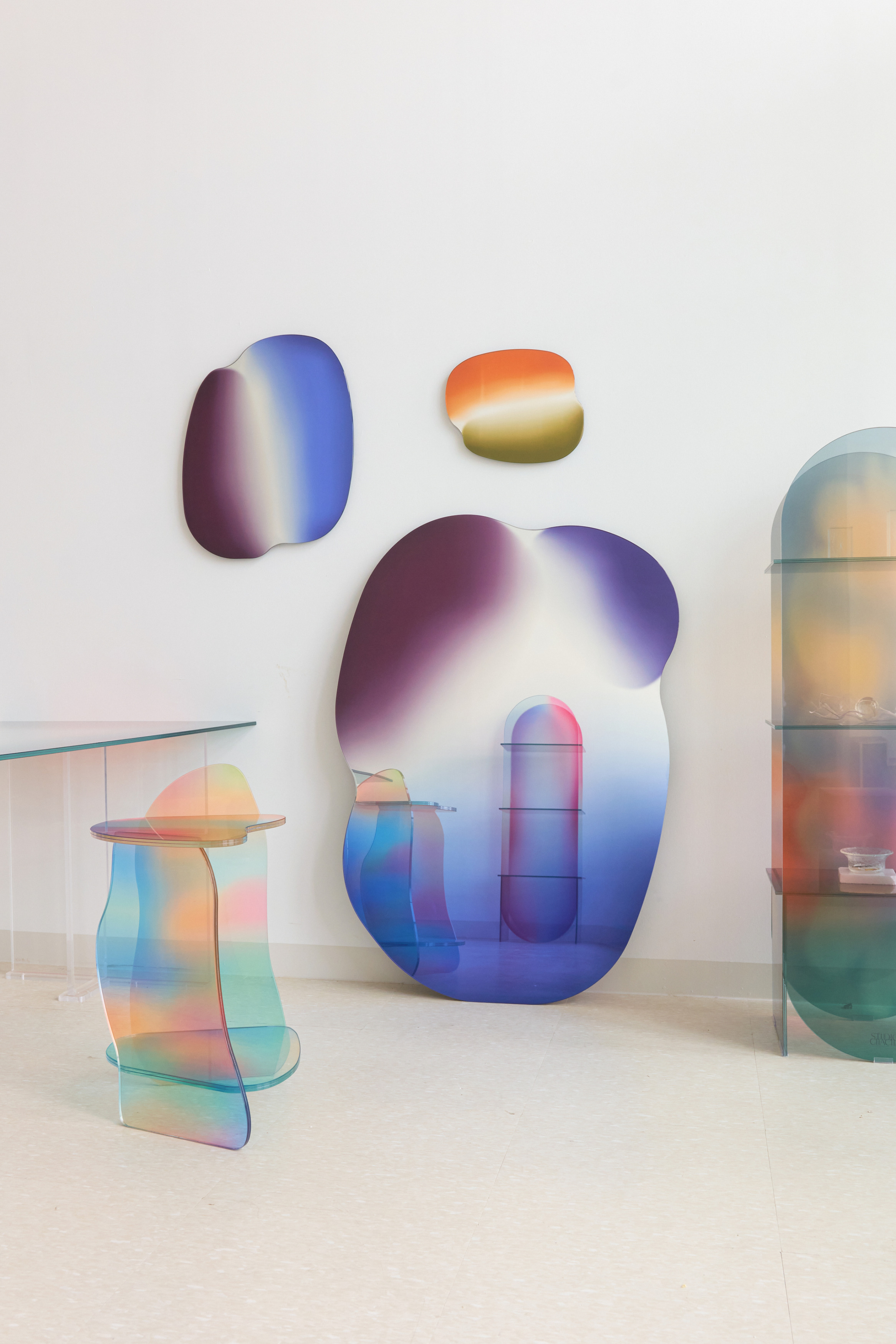
One of the most exciting debuts at this year’s fair was Wekino, a South Korean design and lifestyle brand that aims to establish Korea as a global design powerhouse. Its first showcase outside of its home country, curated by Swedish design studio Note, suggests it’s not far off from achieving that goal.
The collection features objects from seven Korean designers, spanning lounge chairs and tables, to bookcases, rugs, mirrors, and coat hangers. Each of the designers was asked to create an object that responded to the idea of ‘juxtaposition,’ specifically the juxtaposition between Korea’s fast-paced, vibrant urbanism and refined traditional craft heritage.
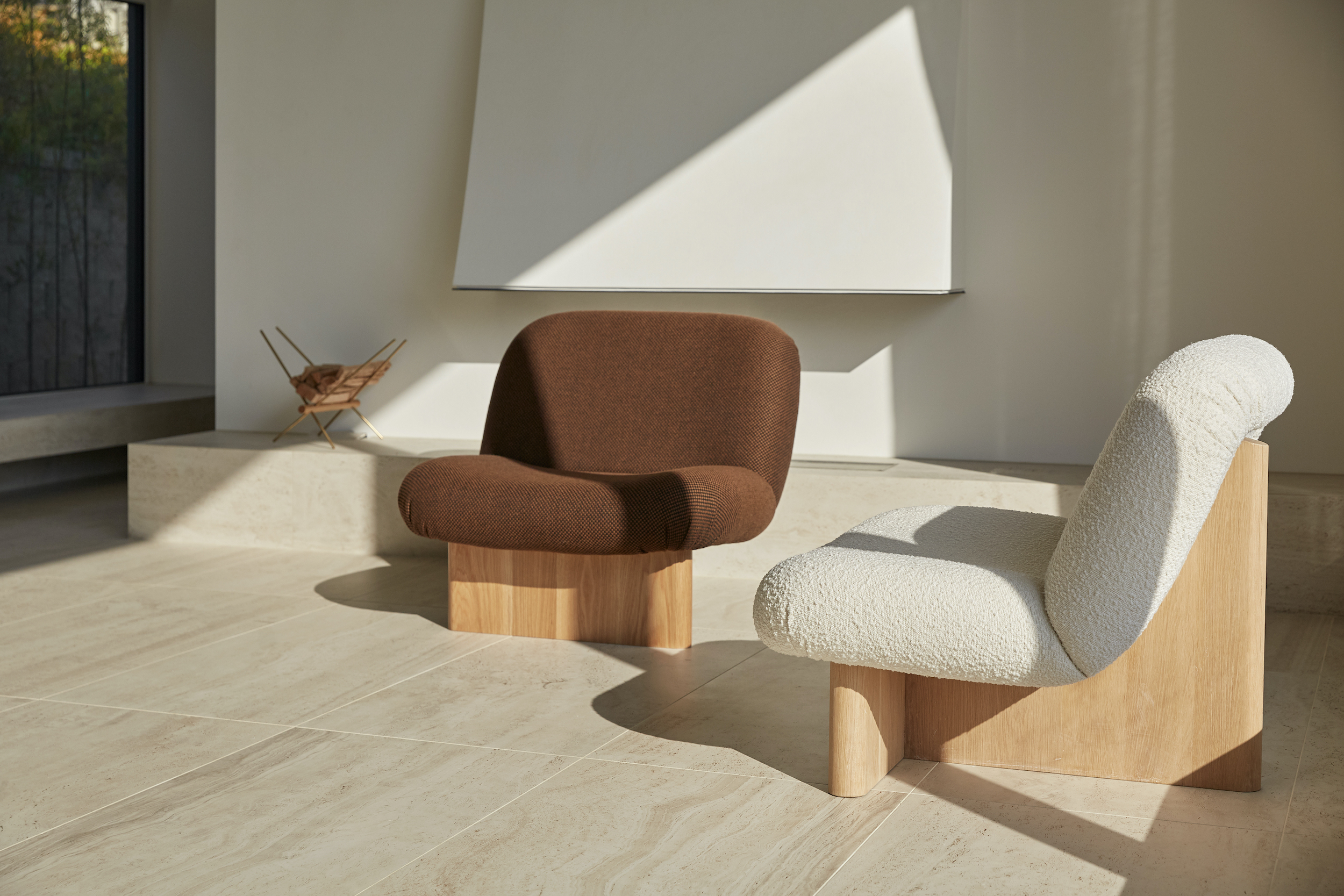
All of the results are notable, especially the ‘Billow Lounge Chair’ by Kwangho Lee (who has previously collaborated with Hem), which blends curvaceous upholstery, evocative of a floating woodprint cloud with a modern, angular oak base. There is also the colourful, amorphous ‘Chroma’ mirrors by Studio-Chacha which transform the everyday-looking glass into a kaleidoscopic portal that will no doubt spawn thousands of mirror selfies.
‘A lot of super talented designers [in Korea] just needed this opportunity,’ said Note product designer Joong Han Lee during a brand presentation. ‘Our role was to bring that opportunity to these brands, and to establish them within Korea and outside it.’
Svenskt Tenn
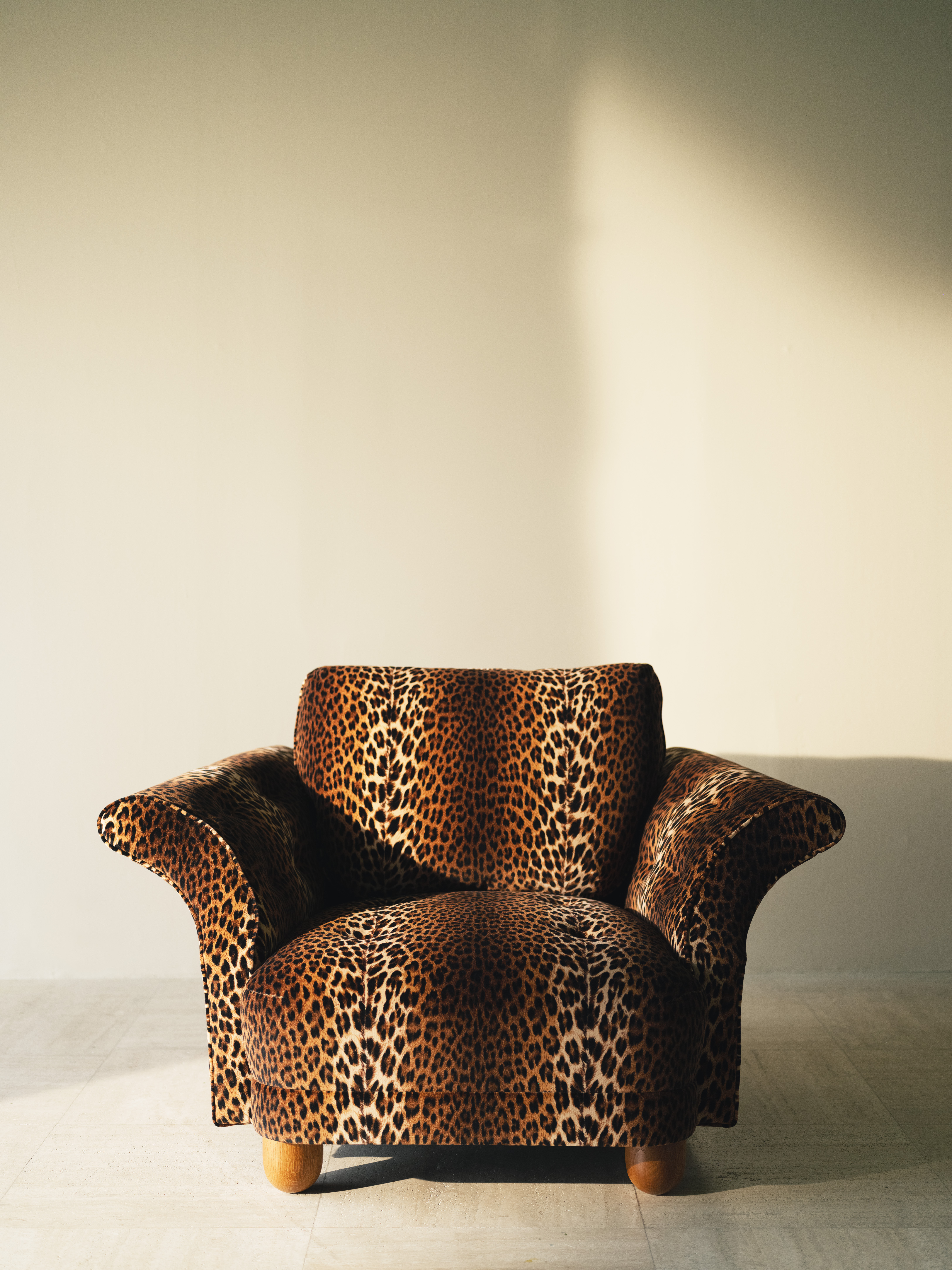
Perhaps no other brand epitomises Swedish design better than Svenskt Tenn; and so the fact that the Stockholm-based house is marking its 100th anniversary this year just further proves the nation’s enduring design legacy.
To celebrate, Svenskt Tenn debuted a revamp of a classic Josef Frank fabric entitled ‘Stockholm.’ The new fabric, named ‘Svenskt Tenn Est. 1924’ adds new depth to the original's red, green and blue map motif with the help of 3D visualisation technology. It’s a subtly modernised version of a classic pattern that was, and still is, bold, colourful and undeniably Svenskt Tenn.
At the flagship in town, the brand also displayed a selection of classics from the archive, including the Liljevalchs armchair (pictured above), one of Josef Frank’s first designs for the brand, and a limited edition Stockholm cabinet decorated with a vintage map of the city.
Iittala
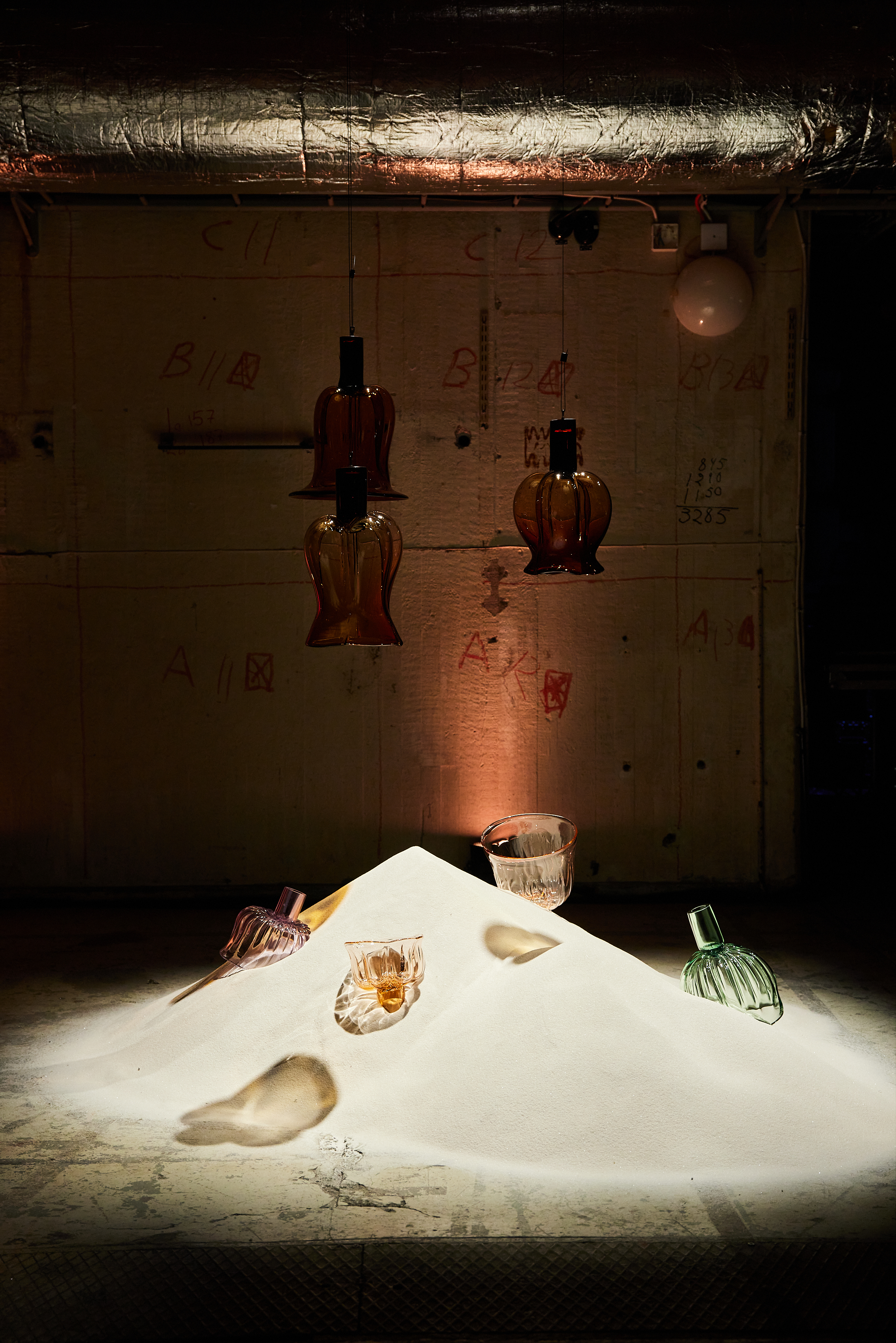
The cocktail evening for IIttala the night before the fair opened was a bold and brilliant event that introduced the design world to the brand’s new creative director, Janni Vepsäläinen, and hinted that she might just be one of its most exciting new talents.
Prior to joining IIttala, Vepsäläinen had a successful career in fashion as a designer for JW Anderson and The Row. Her appointment to IIttala – a Finnish glass house dating back to 1883 – came as a surprise, and to some a potential risk, but her debut on Monday night (5 February) left the crowd buzzing with excitement.
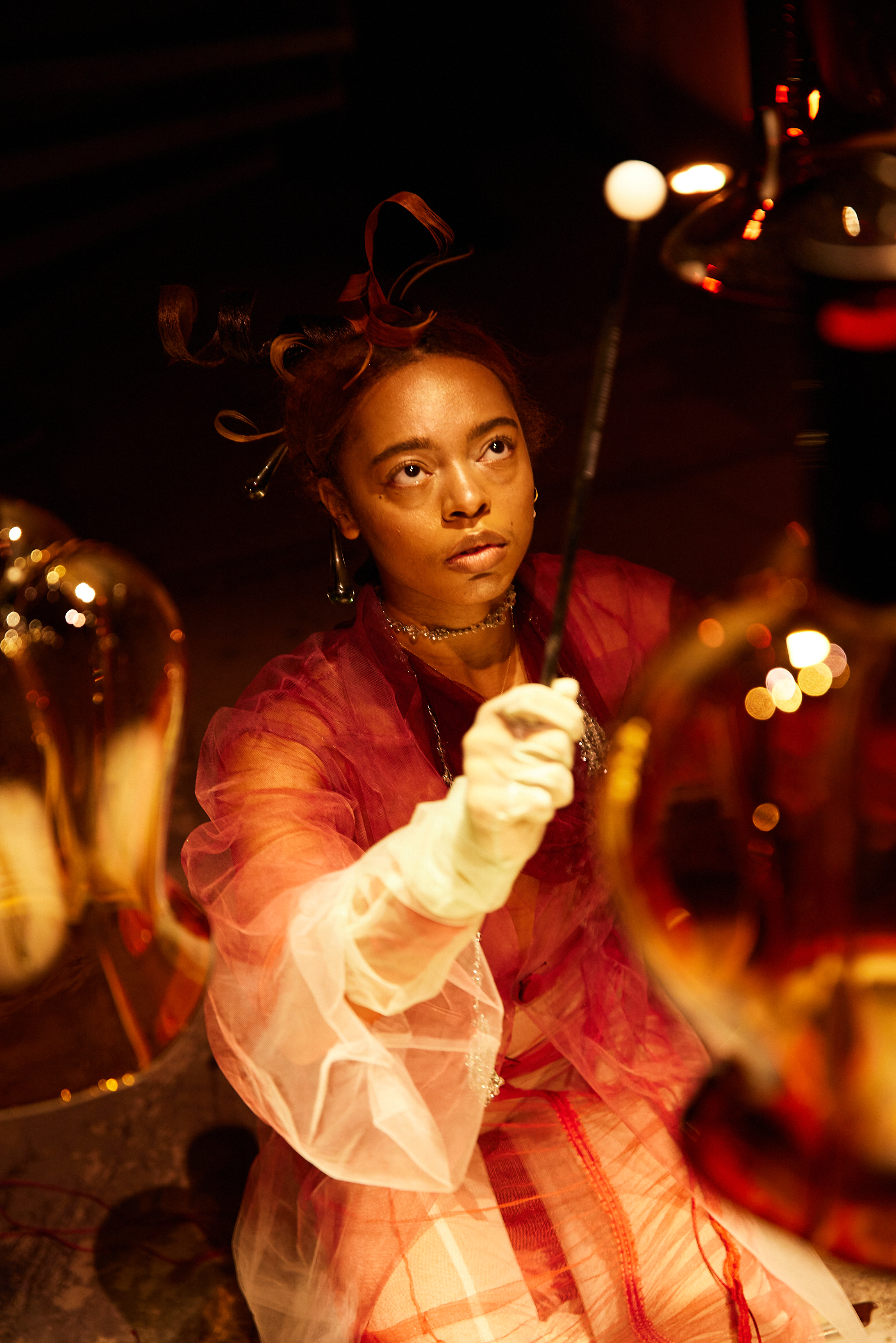
The performance took place in a former nuclear weapon lab, with guests descending hundreds of feet below ground to sip champagne among graffitied walls and suspended sandbags leaking into giant sinkholes. Experimental multi-instrumentalist Damsel Elysium ‘played’ the brand’s bulbous glassware as a ghoulish soundtrack ricocheted through the cavernous space. Alongside the glass pieces, the brand also debuted a range of tableware, tea towels and other accessories titled ‘Play’.
Wästberg
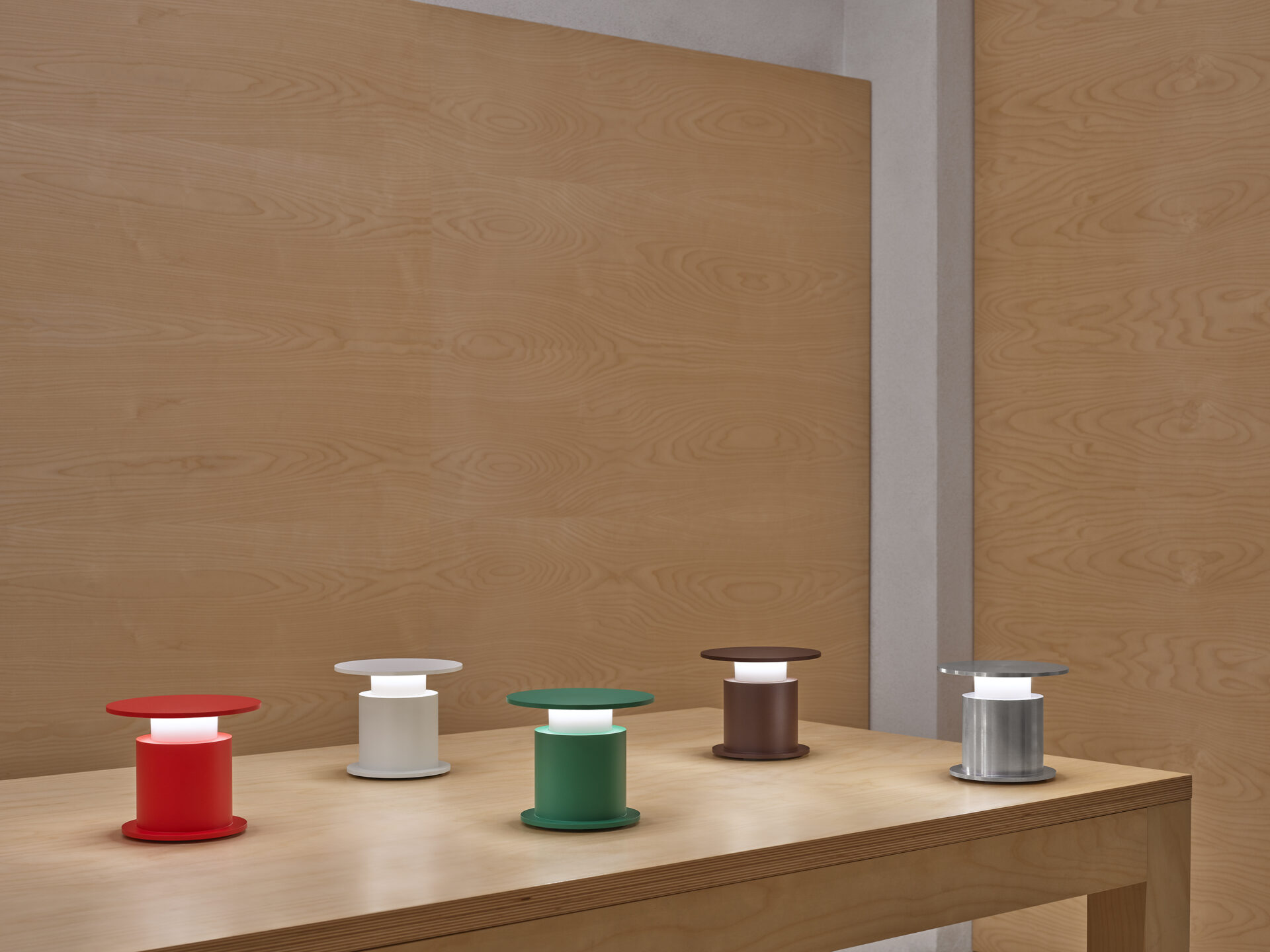
Swedish lighting brand Wästberg is known for collaborating with some of the world’s most renowned architects and designers to create lighting that can enhance any environment. At Stockholm Design Week 2024, the brand displayed the ‘w241Faro’ (pictured), designed in collaboration with David Chipperfield and inspired by the shape of lighthouses. The cordless lamp, which has batteries that last up to 20 hours, can be adjusted for focused illumination or more moody, diffused light.
Also on display was its classic ‘Dalston’ hanging lamp by Industrial Facility, with its sleek and subtle design inspired by the lamps in industrial workshops but reimagined for a contemporary office space.
Gustav Westman
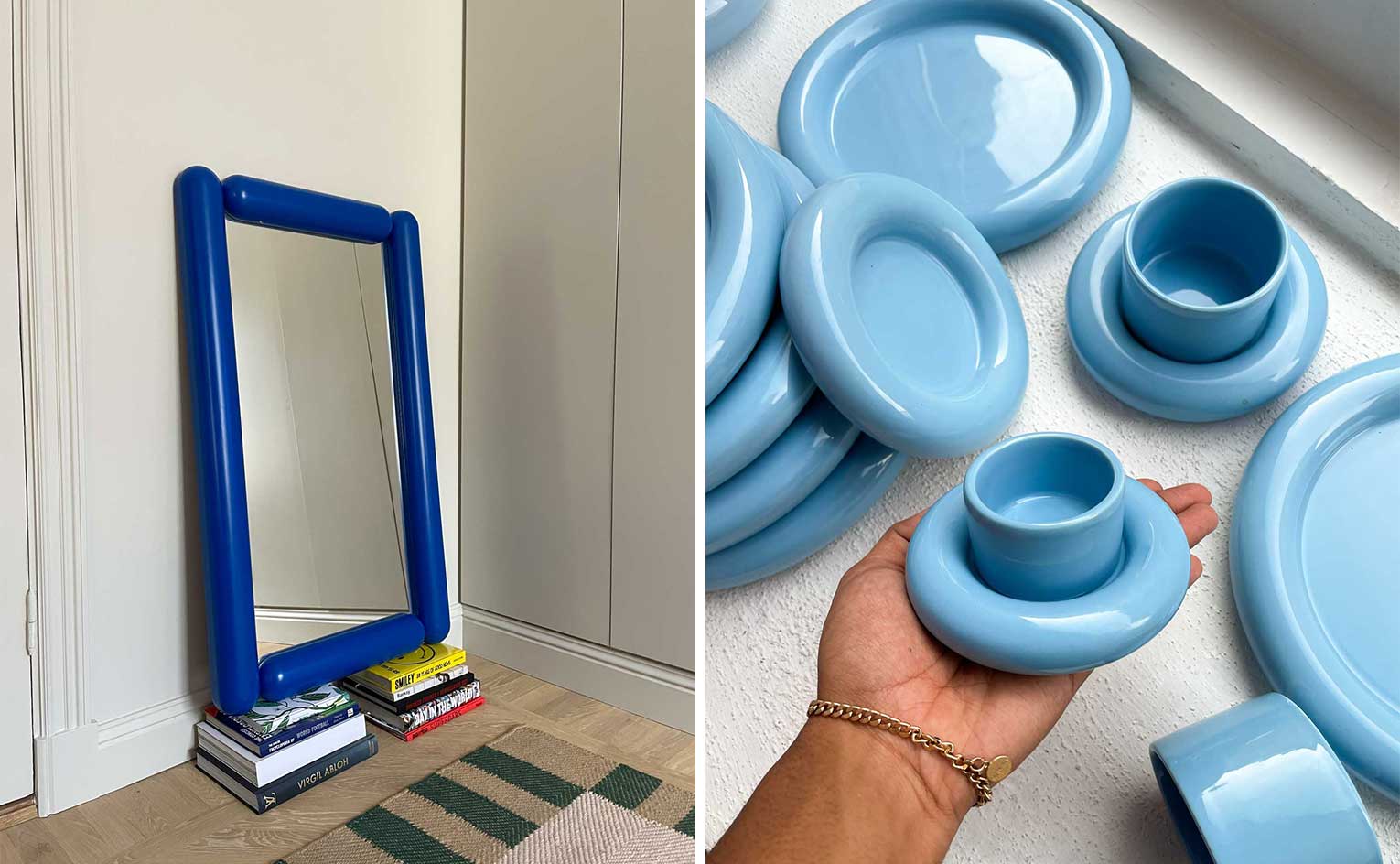
Gustav Westman is a young designer to watch. The Stockholm-based upstart is best known for his playful designs like ‘Chunky Cup and Saucer’, made to decrease spillage for cocktail parties in the evening and coffee in bed the morning after; as well as his instagram-famous ‘Curvy Mirror’.
These designs epitomise the general ethos of Westman’s aesthetic, which is fun-loving and made for social occasions. His booth at the fair was a riotous collection of colourful stools, vases, plates, tables and more, while he also welcomed a few guests for cocktails at his office-turned-temporary showroom in Stockholm’s hip Södermalm neighbourhood.
Massproductions
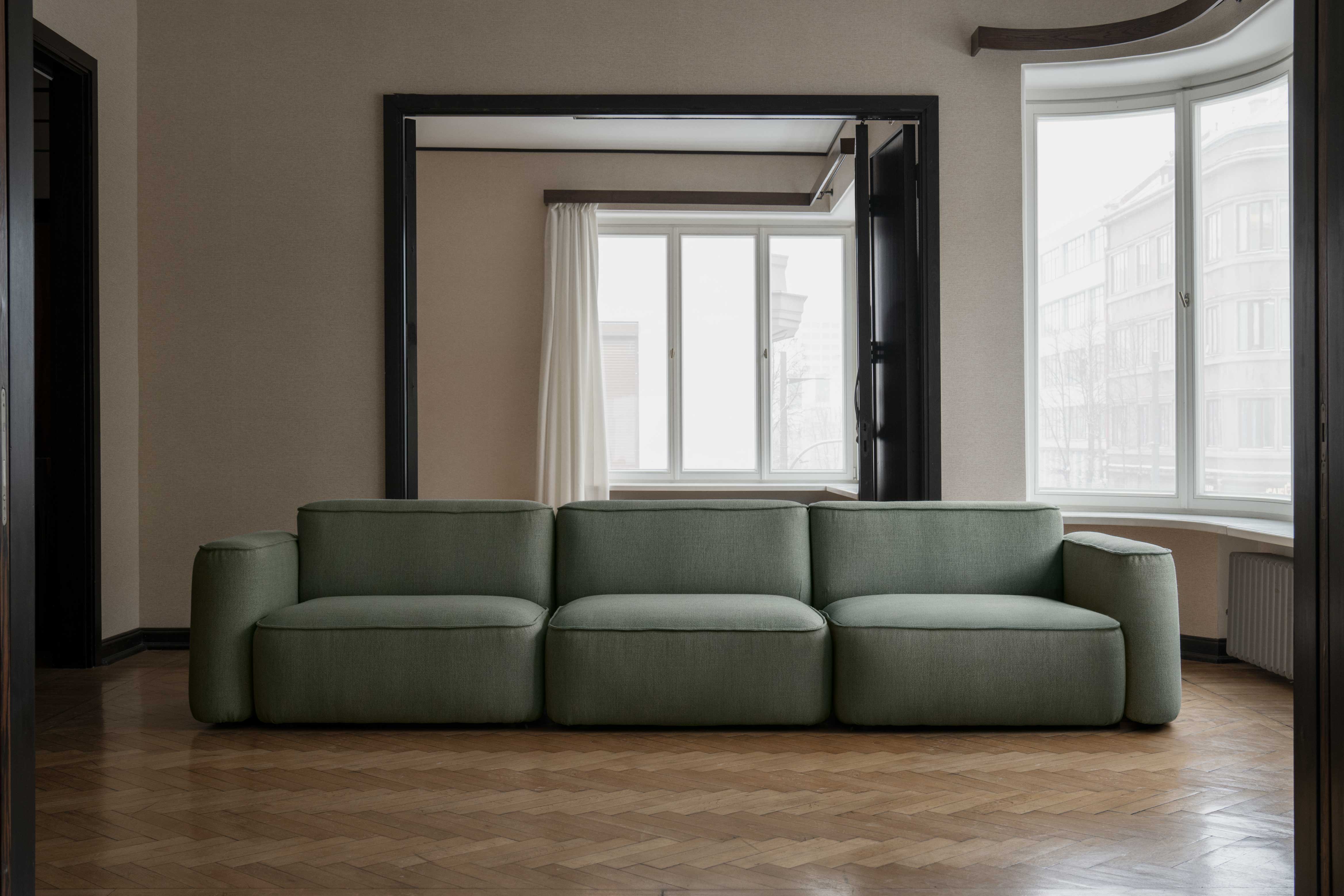
Crowd favourite Massproductions unveiled its new ‘Patch Sofa System’ at this year’s fair. ‘An homage to duffel bags, moc toe boots and a string of sausages,’ ‘Patch’ is a modular system adaptable for any space and proves to be as enjoyable to sit in as it is to look at.
‘A massive sofa system isn’t the type of product that a young company would launch,’ says creative director Magnus Eleback, ‘we are almost out of our teenage years now, and in the context of our collection Patch just seems to fill a space and fit.’
Primitive Arrangements by Nick Ross
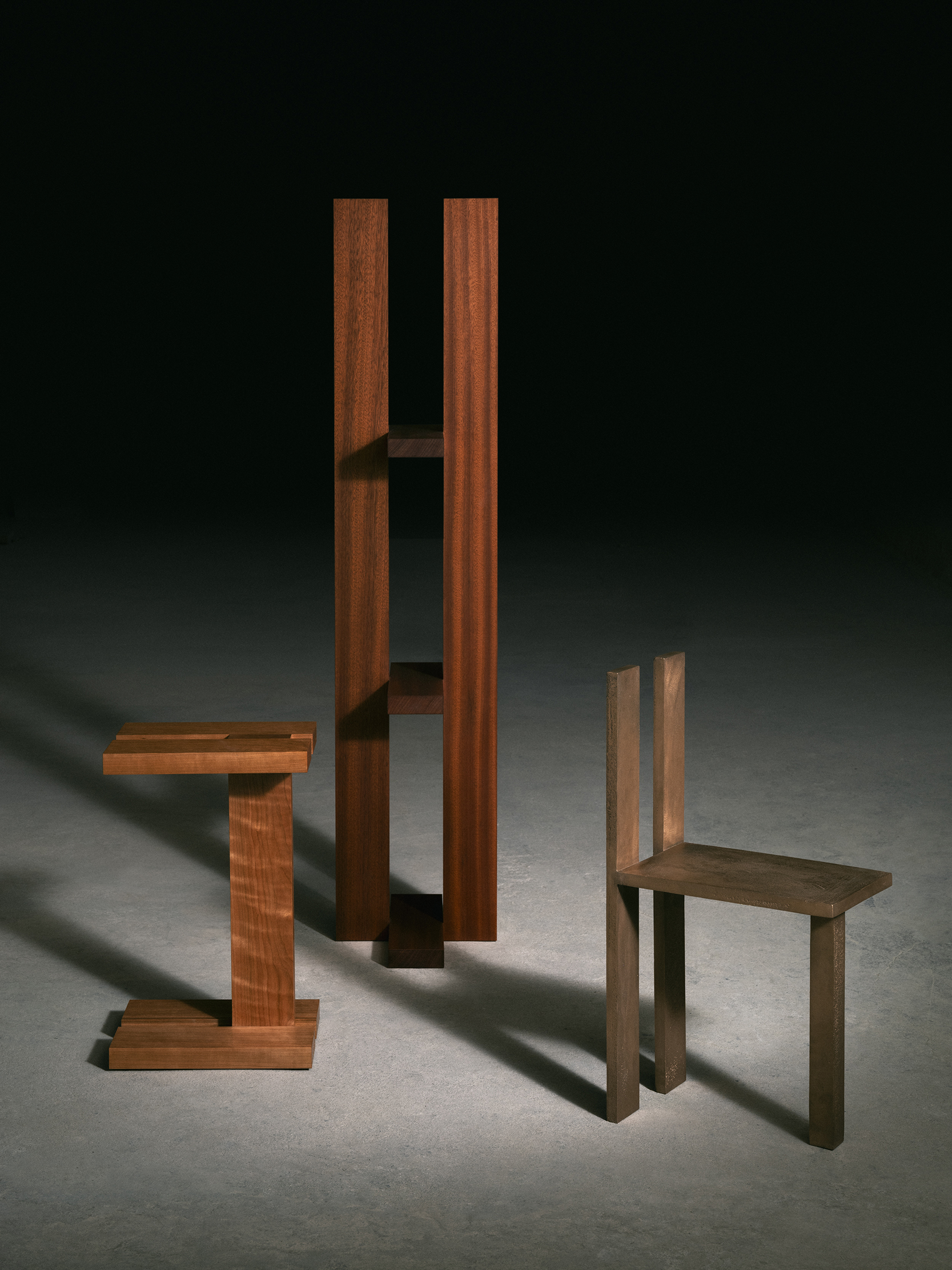
The minimalist work of Sweden’ Nick Ross has always had a philosophical bent. Ross’ contribution to this year’s fair is no different, with stools, chairs, shelves and candlesticks that draw inspiration from some of the first objects designed by humans, specifically Scandinavian Bronze Age boats, Viking jewellery and standing stones. Ross investigates the essence of good design. How much, he asks, does it take to make an object that is both functional and beautiful?
These days, we tend to be drawn to bold and colourful objects that translate well into photographs. Ross’s ‘Primitive Arrangements’ series suggests that objects pared back to their simplest elements can be just as, if not more, impressive. ‘These objects are simple,’ he says, ‘showcasing my design philosophy in its purest form: material and volume in context.’
Vaarnii
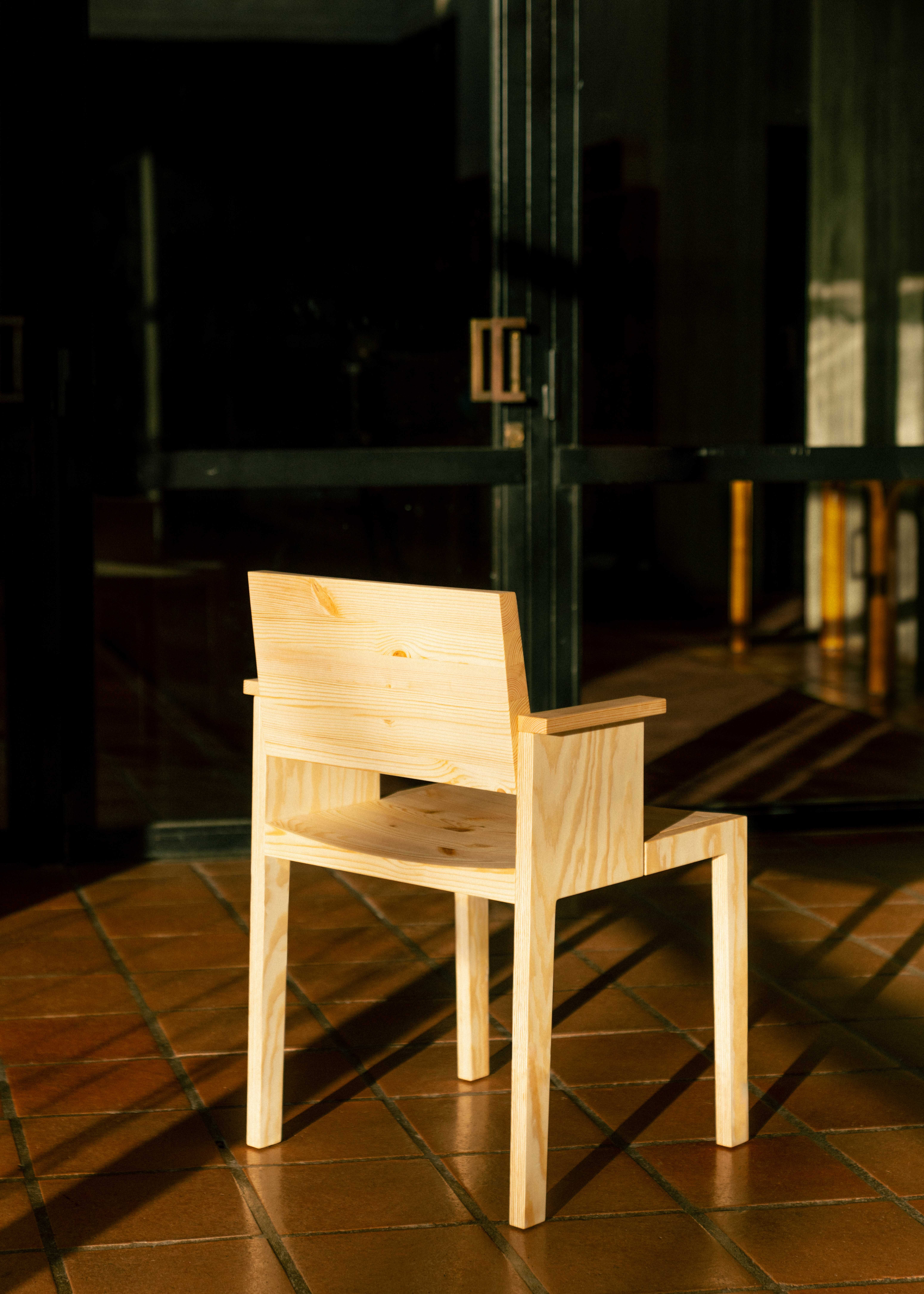
Finnish design brand Vaarnii presented Ronan Bourollec’s ‘Maasto’ chair (pictured) and another by Faye Toogood. Defined by Vaarnii's distinctive use of pine, the chairs encapsulate the designers' unique approach to furniture with the brand's material-focused language. 'Working with Vaarnii is like working in a bakery,' said Bouroullec. 'The baker uses flour to produce something simple and good; here we use pine to produce something good, durable, the grace of simplicity.'
Stockholm Design Week 2024 runs until 11 February, stockholmdesignweek.com







